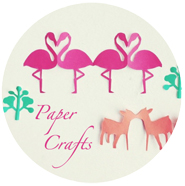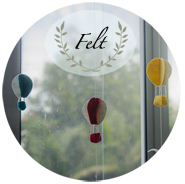Oh boy, I was not prepared to receive an onslaught of comments on this blog when this post went viral on various alternative news Facebook pages on Friday morning. It has been overwhelming see the responses, and to find that there are plenty of parents and non-parents alike who agree that there are some inherent issues that ought to be addressed in the Singapore’s Education System.
The comments have been interesting to read, and varied as well. It ranged from having my POV (point of view) of ‘What I will do if it happens to my child’ dissected and analyzed like a dissertation, to ‘It is because of people like you that many do not want to be teachers.’
Thank you for all who commented on my blog and left your comments through the various Facebook pages. However, I thought that it will be appropriate to address some the comments with this post :
– The post was written based on my personal opinion and insight. You are welcome to disagree.
– Nonetheless, the post was not personal.
In addressing the context of the photo that I attached in my last post, I thought it will be good for me to clarify on some of the questions mentioned in the comments :
1.This was NOT a worksheet on Comprehension, it was a Primary 1 English test paper from a local school. The child who completed the questions in this test have NOT been exposed to the genre of fairy tales in school. This has been clarified with the mom and child.
2. Mom of child has not been informed of the STELLAR programme. Is it really part of the Primary 1 English curriculum in all schools nation-wide? And if so, why are there still many parents have no prior knowledge of this programme? This is something that I will discuss further in this post.
3. As a fellow mom and a mom blogger, I do not sensationalize my blog posts. I do make an effort to be a role model for my child, who will one day read the posts on this blog. So truthfulness is a moral that I hold strictly to, both as a parent and a mom blogger.
4. The post have not been written out of context. To see an example, how words are taken out of context IRL, kindly see my post on Mega Churches in Singapore.
5. Readership has never been a focus of this blog. I write for myself to reflect, as well as to share my thoughts with my friends and contacts on Facebook who are fellow parents, and start online conversations or discussions with my fellow mom bloggers in our online community.
6. As for the good that have resulted from the previous post? The latest update that I have from the mom, is that the teacher from her kid’s school gathered students in her class on Friday and re-corrected their test papers. Kudos to this teacher for being open to the feedback, and acting quickly to address this.
Out of my curiosity on Saturday early morning, I clicked into one of the Facebook profiles that ‘LIKE’ the post and found that there are Singapore Educators (from National Institute of Education) who were talking about this post. For the educators who have pick up on the post on Friday, I am heartened that this post have caught your attention and we can start a conversation about this.
In my typical truth-seeker style, I believe that it will be of interest to many readers of the blog to find out what educators may be talking about, in response to the post. To protect the educator and his community that I started a conversation with in Facebook, his name and profile has been blotted out. He will be known as Mr D in this post.
These are some of the comments that was discussed in response to my post shared in Facebook, including my short analysis on each comment :
1. This is Mr D’s first response to the post

I think it is important to know how an educator who trains our teachers for the system, think about the logic of fairy tales that are added to the marking scheme of an English test paper. Could Mr D be a Generation-X child? I am a fellow Gen-X child, whose reading diet as a child, consisted of fairy tales stories and books by Enid Blyton.
Are fairy tales considered to be a form of general knowledge that is required for a Post-Millennium Primary 1 child? If the educators strongly believe that it is a useful genre to teach basic conventions and structures from stories, then do ensure that it is a part of the English teaching curriculum. Or ensure that this requirement is communicated to the parents, so that we can do something about it.
What I have realized, is that this comment is made from the perspective of an adult with past exposure to this genre of stories. What may deem logical to an adult, may not be logical knowledge to a 7 year old, with no prior knowledge or exposure to that information.
2. Mr D’s has friends in Facebook, who are also lecturers in NIE. He shared a comment from this other educator.

The mom in discussion, whose kid have experience this, does not know about the STELLAR programme. Neither does she have friends who are teachers or ex-teachers in the local school system. Can schools and educators start educating us about this? My child is starting primary 1 next year, can you share with me what is it about, and the rational and objective of the programme.
So I believe this comment is based on the assumption that questions were assigned based on books introduced through the STELLAR programme.
I will reiterate that it isn’t. Familiarity can provide the misguided illusion of understanding, so it is best not to assume.
So I will clarify it here once again.
It is an English Test Paper, for a child who is NOT exposed to the genre of fairy tales in the specific school and thus will not have a logical understanding of fairy tale conventions in the question.
Well-informed parents of Post-Millennium generation of children have realized Fairy Tales can be an inferior genre of stories. With the folkloric fantasy creatures, stereotypes, tales of revenge and sometimes macabre endings, they are not exactly the best stories to use to teach children.
However, I will agree that Fairy Tales will be a good genre to teach higher-level order thinking skills. Only when the child is able make connections to the genre from prior knowledge, as well as knowledge of language conventions in the writing process, they are able to understand and create meaningful text or logical text.
Since both reading and writing is focused on meaning and development. They reinforce one another. Nevertheless, children will need professional judgement and careful observation from their teachers, so that the teachers can provide specific and explicit instruction to facilitate independent writing and practice. And then the children can be evaluated through a test on what they have learnt.
I understand you didn’t mean to sound a little condescending, Mr/Mdm Educator. I know that it can be very frustrating and tiring for teachers to have to deal with 30 students in a class daily with all their different quirks and then manage their quirky-weird, over-protective parents who ask too much questions about your curriculum.
Generally, most parents believe in giving credit where credit is due, but we would also like to ask questions about the issues that concern our children.
I belong to a community of mom bloggers known as SMB, or Singapore Mom Bloggers. Highlighting this issue on my blog, is just a regular education-related post for me and one of the many discussions we have about the education system in Singapore and our children.
Both frustrations and commendations alike, are discussed on a regular basis.
3. This is my response to Mr D’s friend’s comment.

I can’t help but to respond with that slight antagonistic tone in my comment, I am human too. I was appalled by Mr D’s educator friend’s comment about parents in general.
Forget that I managed to chance upon that comment. Let’s start over with this.
A Letter to the Community of Primary School Educators in Singapore
To Mr. D and his community of educators :
All that I am is a concerned parent, I try not to be antagonistic but I can’t help that I am extremely inquisitive and vocal. You are the professional, and I am the layman. Can you educate me and many other parents out there, as that there seems to be some important requirements and programmes that are in the system now, that is not being effectively communicated to the parents.
Also do advise how test papers are being designed, administered and evaluated.
I get the feeling that you don’t like being questioned. And this makes me very curious how teachers manage the children in their class with the same nature as I have.
Are you open to parental feedback?
Here I will address inherent issues I see in the local education system :
- Partnership between Teachers and Parents is crucial to raise Millenium children for the New World
Looking at the past 30 years, there have been some challenges in parenting and education faced by an earlier generation of parents before us, who have not able to overcome these challenges. This gave rise to the ‘Strawberry Generation’ and ‘Narcissistic Me, Myself and I’ psychographic from the Generation Y children. There are some in this generation of children who are not able to give up their seats to people who need it more than they do in public transportation, much less care about other people around them.
I am careful and discerning as a parent. As I do not want to raise my child to be a lover of self, proud, arrogant, abusive, disobedient, ungrateful, heartless, unappeasable, slanderous, without self-control, brutal, not loving good, treacherous, reckless and swollen with conceit. Children who think that academic achievements is valued more than their character and moral values.
The world has changed drastically the past 10 years and if we continue with the same set of methodology driving our educational system the past 30 years, our Post-Millenium generation of children will not be able to thrive in this new world.
There is no separate ‘Teacher Camp’ and ‘Parent Camp’, we are in the same camp together. Our objective is similar; to educate and inculcate the future generation of Singaporeans. I have found is that it has been extremely challenging to raise this generation of children. And I believe the same applies for the teachers that are inculcating them too.
There is joy in parenting, and I am sure it is the same for you too as an educator. I believe, there is joy in being able to influence young minds and be that major catalyst in their lives.
- Trusting the Education System – A Parent’s Wish list
Yes, I hope to raise creative thinkers. But at the same time, children who are thinking, feeling, humble, grateful, respectful and have self control. Who will know the difference between good or bad, wrong or right, and will discern what choices to make. Children, who are respectful to their elders and to their peers, who will care for the ones around them, the ones who are less privileged than they are and speak out for the voiceless.
Singapore children with a sense of purpose in life, who will understand that true success is a journey, not a destination. The doing is more important than the end product. Children who will learn that ones’ character is more important than academic achievements.
It is a tall order.
You can scoff at me and call me idealistic or blindly optimistic. Nonetheless, can this be a hope that we can work towards, together in our Educator-Parent partnership? Often in life, we need to have an ‘anchor’ or hope for good to come. In the same way, this hope will be the very thing that will help us stand fast amid relentless challenges in our pivotal role as parents and teachers of Singapore’s Future Generation.
Can we ask that parents and educators become true partners, who will work together to drive this hope for the good of our society and the future of our children? As a parent I cannot do it alone.
I am aware that the attitudes of parents play a key role in influencing the demands of the system. But you are the professionals, I trust that you will know what is good or detrimental to children. So there will be a need to educate all parents.
I am fully aware that we can’t avoid the meritocracy of the system that we are in. But can we re-align the priorities in the educational system, find a balance somewhere and make the necessary adjustments to the current education ethos?
- Equal Opportunites to Learn
I like to speak out on behalf of the voiceless, and for the rights of the children who are vunerable in the system. Children that come from low income families, kids in our child welfare system.
There is a child who may have parents who hold two jobs helping at hawker stalls, parents who can hardly speak English, much less read fairy tales or any other genre of stories to them before bedtime. Parents who cannot afford tuition for their children. Parents that teachers will likely meet at Parent-Teacher Meetings yearly, who will tell you, “No choice, I have to work, I have no time and I don’t know how to coach him.”
Or another, who takes care of her 4 other siblings after student care, and then waits for her single mom to return home from her manicurist job at 10.30pm, 6 days a week. She still struggles with reading a book, much less understand the conventions in a fairy tale genre in questions of a test paper. This little one does badly in school not because of low IQ, but with the lack of coaching and help.
These children will be my son’s classmates in school next year.
Children who may not have parents like me, who can read aloud stories to them before bedtime, coach them with school-work. Not every parent can afford tuition. Can every child in the government school system be taught in a consistent manner and be given equal opportunity to learn?
As a parent, I appreciate educators and your efforts.
May this be a start of an open door to the conversations we can have as partners. I look forward to a positive working partnership in the months and years ahead.
Yours Truly,
Rachel Teo
Parent and Mom Blogger
So then how did Mr D respond to my comment on his thread in Facebook?
I must say, his reply was rather gracious.

I am encouraged that the Singapore Educational system has educator influencers like Mr D who is able to see this objectively.
If you are a parent OR an educator, I would like to hear your thoughts. Do leave your comments.
To read more about what parents in my community of bloggers think about genre of fairy tales in general, here are posts for further reading :
BlogFather – The Fairy Tale Must End
4malmal – What we Learn from Rudolph
 Photo used with permission from the mom
Photo used with permission from the mom 


















